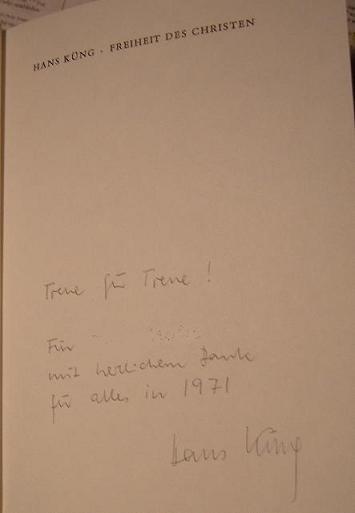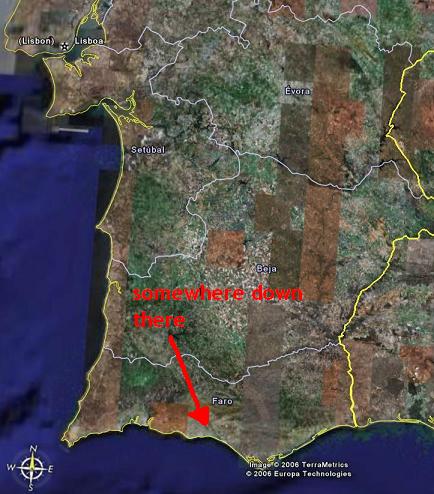
Dunno if anyone finds this sort of thing interesting, but, well, hey ho: To
continue the 2 Cor 3:3 genitive discussion ...
There appears to be a trend among younger German scholars (as opposed to British and American scholars) to understand the
evpistolh. Cristou/ genitive in 2 Cor 3:3 as objective, i.e. that Christ is the
content, not the
author of the letter. Jens Schröter (in
Der versöhnte Versöhner) and Bernd Kuschnerus (in
Die Gemeinde als Brief Christi) for example. Both are excellent works, btw (the Greek font used is
Bwgrkl - see the download button on the right).
‘Die Bezeichnung der korinthischen Gemeinde als „Brief Christi“ markiert vielmehr die Art der Verbindung zwischen Paulus und den Korinthern als eine, die Christus zum Inhalt hat’ (Schröter, 64).
Why Schröter interprets 2 Cor 3:3 evpistolh. Cristou/ as an objective genitive:
First, he tackles the usual evidence cited in support of the subjective genitive reading, namely, the supposed parallel in v. 2 (with
h` evpistolh h`mw/n). In this line of reasoning, Paul is understood as the v. 2 letter’s author, thus implying a parallelism such that Christ is v. 3’s author (65, fn. 4 for examples). Against this, Schröter suggests that such a parallelism between the two genitives which presupposes that in both cases the writer of the letter is indicated, is implausible. Rather,
God is the author in both cases. In particular, in v. 2 the language suggests that God is the writer (66) given the fact that the letter is written in the hearts of the Corinthians (here Schröter accepts the less well attested
u`mw/n). This reasoning, Schröter suggests, is confirmed in 2:14f where the role of the apostle is noticeably passive.
Finally, while remembering the context in which Paul is detailing the Corinthian church as Paul’s
letter of recommendation, Schröter argues that this indicates the genitive in question designates the content of the letter, something confirmed by the combination with 2:14: ‘the apostle stands in direct relation to God, and Christ is presented, in a manner of speaking, as the qualification of this relation’ (66).
Why Kuschnerus interprets 2 Cor 3:3 evpistolh. Cristou/ as an objective genitive.
He first argues (163) that God is surely the author of the letter in 2 Cor 3:3 as the thematic parallel of 2:14 makes clear: in 2:14, a verse connected thematically with 3:3, God is unquestionably the subject of the Christ-revealing event. Furthermore, and second, the 3:3 OT verses alluded to make clear that God writes in the heart and is the giver of the Spirit, thus imply that God is also the subject in 2 Cor 3:3. Third, in support of an objective genitive reading is the connection between the Spirit and Christ as it comes to expression in 3:17-18. The Spirit in 3:3 is the material in which the writing is done, and the connection (identification?) of Spirit and risen Lord in vv. 17-18 suggest, in turn, that Christ is the content of the letter, not its author. This reading is suggested also by the fact that, in 3:18, the Corinthian Christians see in each other the glory of the Lord because ‘the life of Christ’ is within them (compare 4:10-12 with 3:6). Christ once again appears as related to ‘content’.
Finally, Kuschnerus pursues this argument in light of his own metaphorical analysis:
‘The extensions (evggegramme,nh) pneu,mati qeou/ zw/ntoj( (evggegramme,nh) ouvk evn plaxi.n liqi,naij and (evggegramme,nh) evn plaxi.n kardi,aij sarki,naij create, when referring to the letter, a semantic tension. It is, however, possible to semantically unite them with the genitive object Cristou/ which qualifies the letter. This will be shown in the following.’ (166).
He goes on: ‘The text itself shows a metaphorical sequence’ (169). However, to be fair it is doubtful that his analysis of the following interplay of metaphorical language and OT allusions is
positive evidence against a subjective genitive or for an objective genitive reading as the material cited is rather neutral in regard to the question. Likewise, arguably also the subject-orientated Christology in Paul has been neglected in his analysis.
Actually, I think they are both wrong.



















